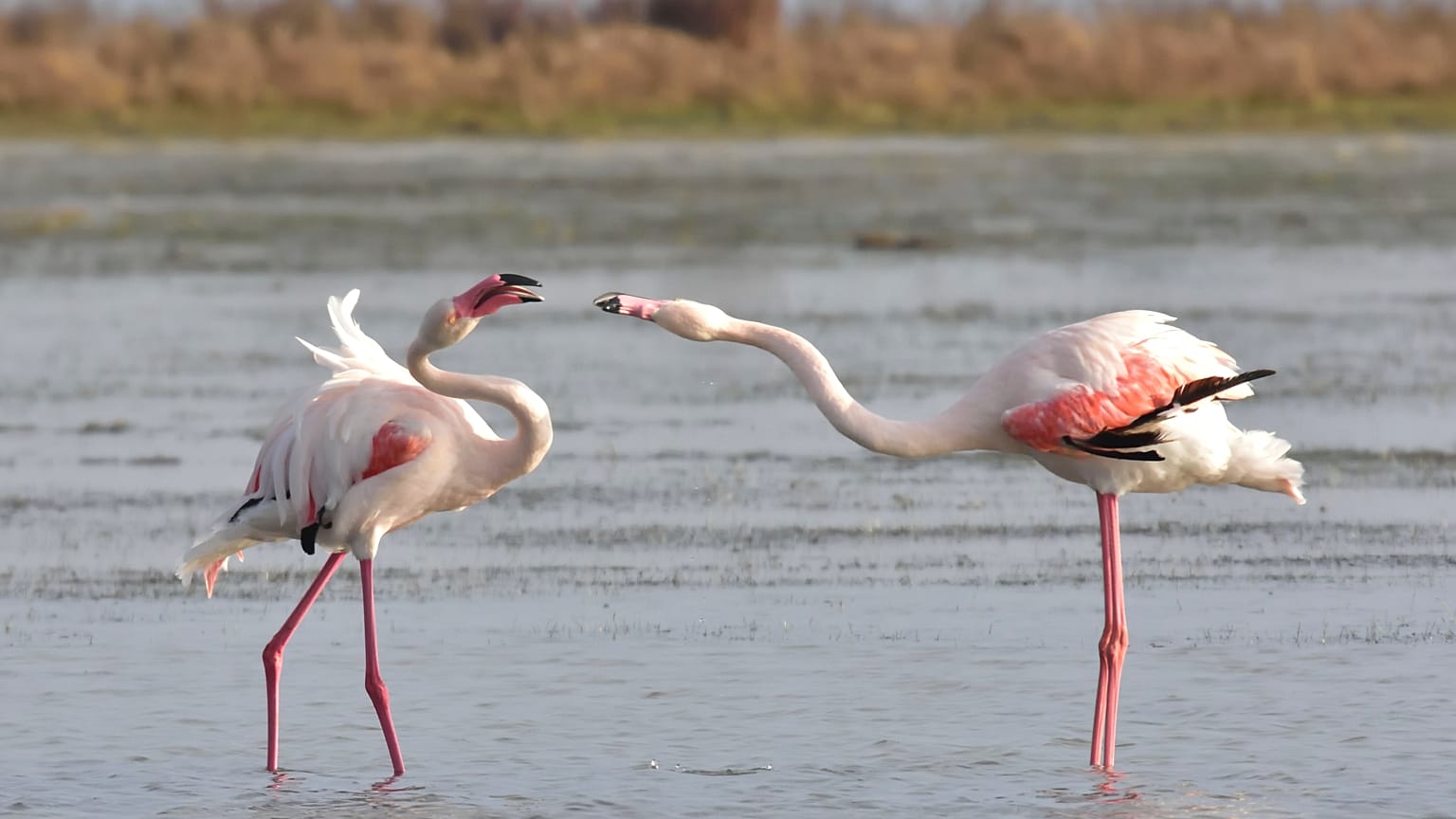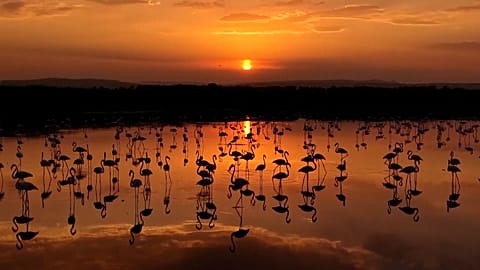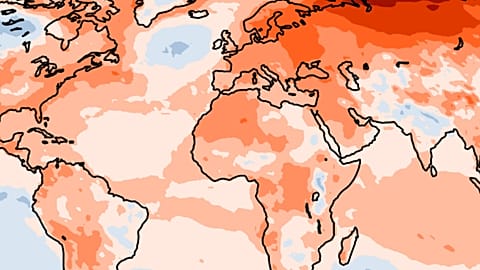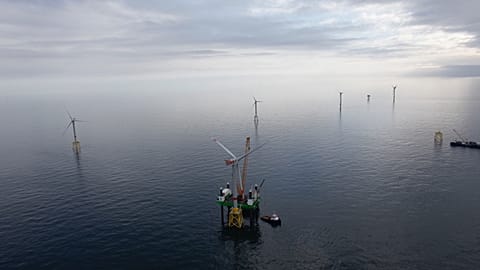From October 2022 to April 2023, the country’s rainfall was 24 per cent below the average for this period of the year.
Spain has been suffering a prolonged drought and flamingos are the latest victims.
The birds would normally flock to the Fuente de Piedra wetlands in Andalusia, but recent climatic conditions have caused the lagoon to dry up.
Spain is facing widespread water shortages which are also affecting agricultural crops, livestock and reservoir levels.
From October 2022 to April 2023, the country’s rainfall was 24 per cent below the average for this period of the year.
Flamingo wetlands dry up amid Spain drought
Last year, the vast Fuente de Piedra lagoon near Málaga was home to thousands of pairs of pink flamingos.
The migrating birds descend annually on the saltwater wetlands to hatch their chicks, creating one of the largest colonies of the wading birds in Europe.
This year however, only a few dozen adults have been spotted in the waters as a long drought has dried up the lagoon forcing the birds to settle elsewhere.
“It is a shame because of the tourism, people come here for the day,” says local resident Alberto Gonzalez Sanchez, 53. “Normally the lagoon is full of flamingos. There are also many other birds. It looks like climate change is causing this.”
Over 200,000 flamingo chicks have hatched in the lagoon, which has been a natural reserve since 1984, according to Andalusia's Office for Agriculture, Livestock, Fisheries and Sustainability.
Rain level in the area was at its lowest since 1995, Africa Lupion, curator of the Fuente de Piedra natural space, told Spanish radio network Cadena Ser in February.
Spring this year was the hottest and second-driest in Spain since records began in 1961. The abnormally high temperatures are likely to continue this summer.
‘No more water’ for Spain’s strawberry farmers
Another national park in southern Spain is also in crisis. The Donana nature reserve of marshes, streams and sand dunes supports a rich ecosystem of flora and fauna.
But water over-exploitation and drought are imperilling the wildlife. Controversy has arisen over the use of the wetlands’ water sources to irrigate nearby farms.
Farmers in the surrounding Huelva area have been called out for illegally using the lagoons to water their strawberry crops.
The regional government wants to legalise their system of wells, particularly as the area is responsible for producing 98 per cent of Spain's red fruits and 30 per cent of the EU's.
But the European Commission has warned the Andalusian authorities that granting amnesty would violate its responsibility to protect the wetland.
The Spanish government has said that there is no more water, either surface or underground, available for farming.


















